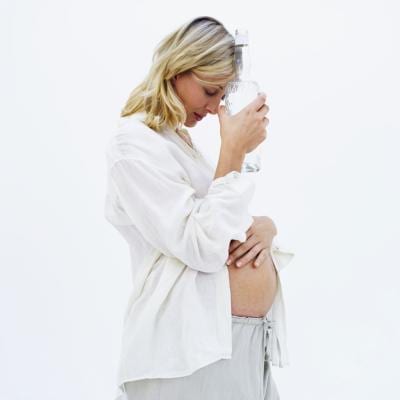Parents who drink excessively, to the point of the drinking becoming harmful or hazardous, are more likely to abuse their children than parents who don’t drink to excess. The World Health Organization defines harmful drinking as drinking to the point of causing damage to your health and hazardous drinking as a pattern of alcohol use that increases the risk of harmful occurrences. If you drink excessively, you are doing a grave disservice to your child.
Dangers
If you have a drinking problem, your reduced self-control makes it more likely for you to strike your child, neglect your child or to sexually abuse your child. And, the abuse doesn’t stop there. By caring for your child when your thinking is impaired, you are more likely to make bad childcare decisions. You may engage in drunk driving with your child in the car. You may not recognize signs of your child being sick. Or, by putting yourself in a precarious financial position, perhaps by losing your job, you may not have the resources to cover your child’s basic financial needs.
Types of Abuse
Physical injuries that children suffer from a parent under the influence are fractures, bruises and burns. Some injuries are fatal. Psychological childhood injuries include stress disorders, fear, depression and attempted suicide.
Fetal Alcohol Syndrome
If you are drink while pregnant, your child can develop fetal alcohol syndrome. Alcohol interferes with oxygen going to your baby’s brain. The more you drink, the more likely it is that your baby can have disabilities, such as impaired facial features, growth problems or problems with the brain and spinal cord. Your baby could be born with developmental delays, hyperactivity and problems with social skills.
Your Influence
If you neglect or abuse your child because of an alcohol problem, your child is more likely to start drinking, too. This typically leads to falling grades, skipping school and general delinquent behavior. As an adult, your child is more likely to drink to excess, abusing her children as well.
Raising Your Child
If you are an alcoholic raising a child, you are likely causing your child to have low self-esteem, anxiety, guilt, depression and behavior disorders. Children of alcoholics tend to score lower on cognitive tests than do children of non-alcoholics. A young child may act out by crying, wetting the bed, not having friends, having nightmares and being afraid to go to school. An older child may keep to himself in his room, become excessively self-conscious, and may develop symptoms, such as hoarding, becoming a perfectionist and may develop phobias.





